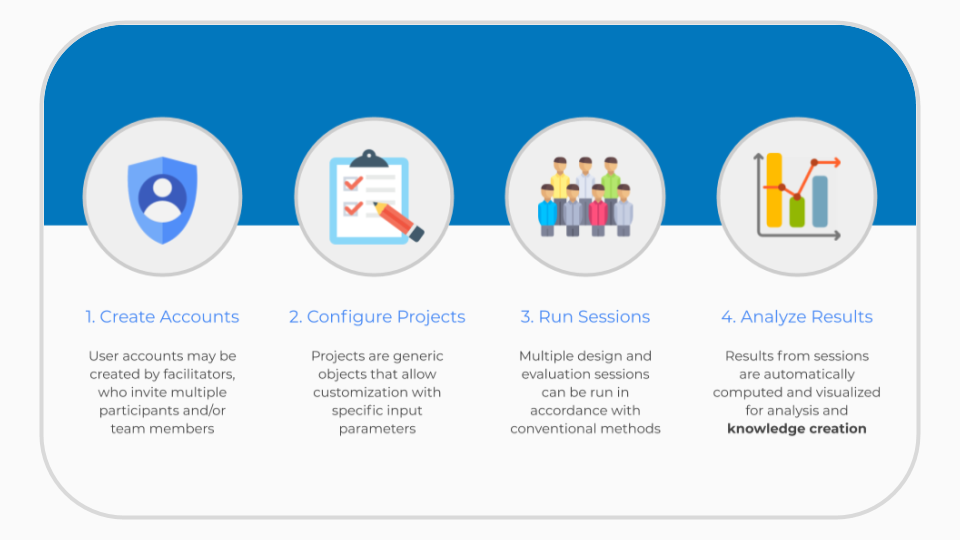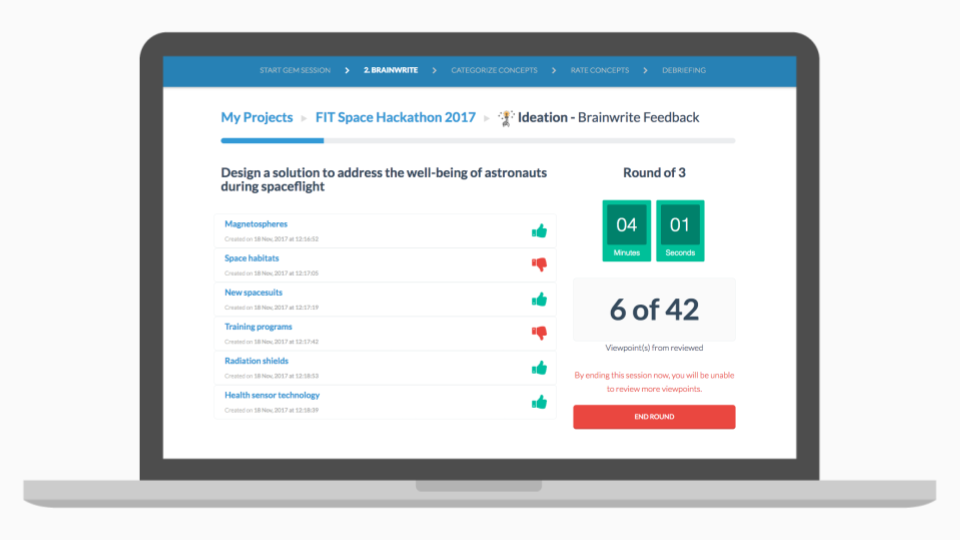In ethnographic design with groups of domain experts, the Group Elicitation Method (GEM) is used to facilitate dynamic interaction and participation around a specific design question with the aim of generating creative innovations.

This research project outlines an enhanced version of the GEM, which is purposefully designed to boost the effectiveness and efficiency of the traditional method while enhancing the experiences of the facilitator and participants. The enhanced GEM leverages the Internet and digital media to reduce implementation costs, increase the reusability of assets, enable remote participation, and archive results from multiple GEM sessions for comparison.

The web application, which encapsulates the enhanced GEM procedure, utilizes instructional videos to guide the process as well as gamification concepts such as avatars, progress bars, stages, and points to motivate participants. A subjective rating tool and objective metrics are used to comparatively test the enhanced GEM against the traditional GEM. The results of the comparative analysis are discussed to inform recommendations.
Features of the enhanced GEM include:
- Micro-tweeting – creating viewpoints with concise, empathetic statements
- Collaborative brainwriting – elicitation & refinement of viewpoints from multiple perspectives
- Auto-scribing – self-documentation of questions and comments during concept categorization for the question-and-answer session.